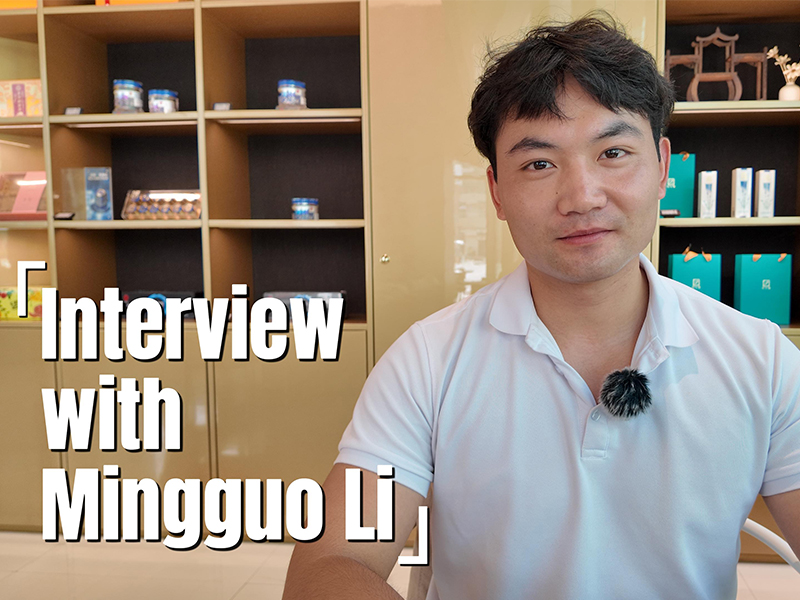- Li highlights the unique search scope and personalised methods of Huawei’s universal search software, distinguishing it from traditional search engines.
- He outlines how optimised algorithms and AI technology enhance search speed and accuracy, offering users instant responses and intelligent sorting.
- Li addresses data security, discussing encryption and isolation strategies to protect user data during extensive information processing.
In our in-depth interview with Mingguo Li, software development engineer and internet product manager at Huawei, we explore the intricate capabilities of Huawei’s global search software. Li’s role is crucial in improving the way users interact with their devices, enabling efficient access to both internal and external data.
He provides insights into the unique integration of AI and sophisticated algorithms that not only personalise the search experience, but also ensure enhanced data security. His discussion offers a comprehensive understanding of how these advances set Huawei apart in the technology industry, and highlights the importance of innovation in shaping future mobile technologies.
Q: Could you briefly introduce yourself and describe your role at Huawei, especially your involvement with the global search software?
A: I serve as an internet product manager at Huawei, primarily responsible for the development of our global search software. Huawei’s mobile universal search offers a fast, intelligent way to search by integrating both internal and external information resources, allowing users to quickly find apps, files, contacts, and web content, enhancing both life and work efficiency.
Q: Could you explain what global search software is and how it differs from traditional search engines?
A: There are two main differences. Firstly, the search scope and targets—universal search is typically limited to the device or a specified network range, accessing local files and app data, while traditional search engines cover the entire internet, providing resources from various websites. Secondly, the search methods and experience—universal search offers a streamlined interface and quick responses, often supporting voice and image searches to improve user experience, unlike traditional engines that provide complex algorithms and varied search options.
Q: How does Huawei’s global search software enhance user experience in terms of speed and accuracy of information retrieval?
In terms of speed, our instant response capabilities mean that as soon as a user types in a keyword, the system quickly returns relevant results, significantly reducing wait times.
Mingguo Li, software development engineer at Huawei
For accuracy, we use AI to analyse user behaviour deeply, allowing intelligent sorting of search results based on history and preferences. Additionally, our support for multi-modal searches, like voice and image recognition, helps locate precise information more efficiently.
Q: What are the biggest challenges you’ve faced in developing this software?
A: The main challenge in image search lies in the extraction and matching of image features. We use advanced deep learning techniques like convolutional neural networks, combined with multi-scale feature fusion strategies, to capture information at different scales and apply efficient similarity calculation methods to enhance both the speed and precision of our searches.
Q: What key technological innovations have been integrated into Huawei’s universal search software?
A: We leverage AI and natural language processing to deeply understand user search intentions and analyse input keywords intelligently. This allows the system to return results that more closely match user expectations, optimising the search process further with AI-driven smart sorting based on user history and preferences.
Q : How does Huawei ensure the data security and privacy of its search software?
A: We employ data encryption to secure user data during transmission and storage, using advanced algorithms to prevent unauthorised access. Additionally, we isolate user data from system and other users’ data, which helps prevent data leaks and cross-contamination.
Q: How does Huawei collect and handle user feedback on the universal search, and how does this feedback influence product iterations and future developments?
A: Huawei regularly conducts user research through surveys and in-depth interviews to gather insights on user experiences and expectations. These findings are crucial for our product’s iterative upgrades and future development directions.
Q: What are the future development plans for Huawei’s universal search software?
We’re going to keep building on the use of AI in intelligent search. We’ll be using more advanced techniques like deep learning and natural language processing to make search even smarter.
Mingguo Li, software development engineer at Huawei
“So, for instance, we’re looking to give users more tailored search result recommendations based on their search histories and browsing habits,” he said.
They’re also working to expand the content ecosystem to make the content resources even richer. He said, “We’re looking to team up with more partners, both inside and outside the company, to grow our content ecosystem. By adding more top-notch content, including news, videos, music, and shopping, we want to meet the different search needs of our users.”
Accurate content matching is also part of their future plans. “We are focusing on improving the accuracy of content matching through optimised algorithms and technical methods. This will ensure that users can quickly find content that is highly relevant to their needs,” he said.

